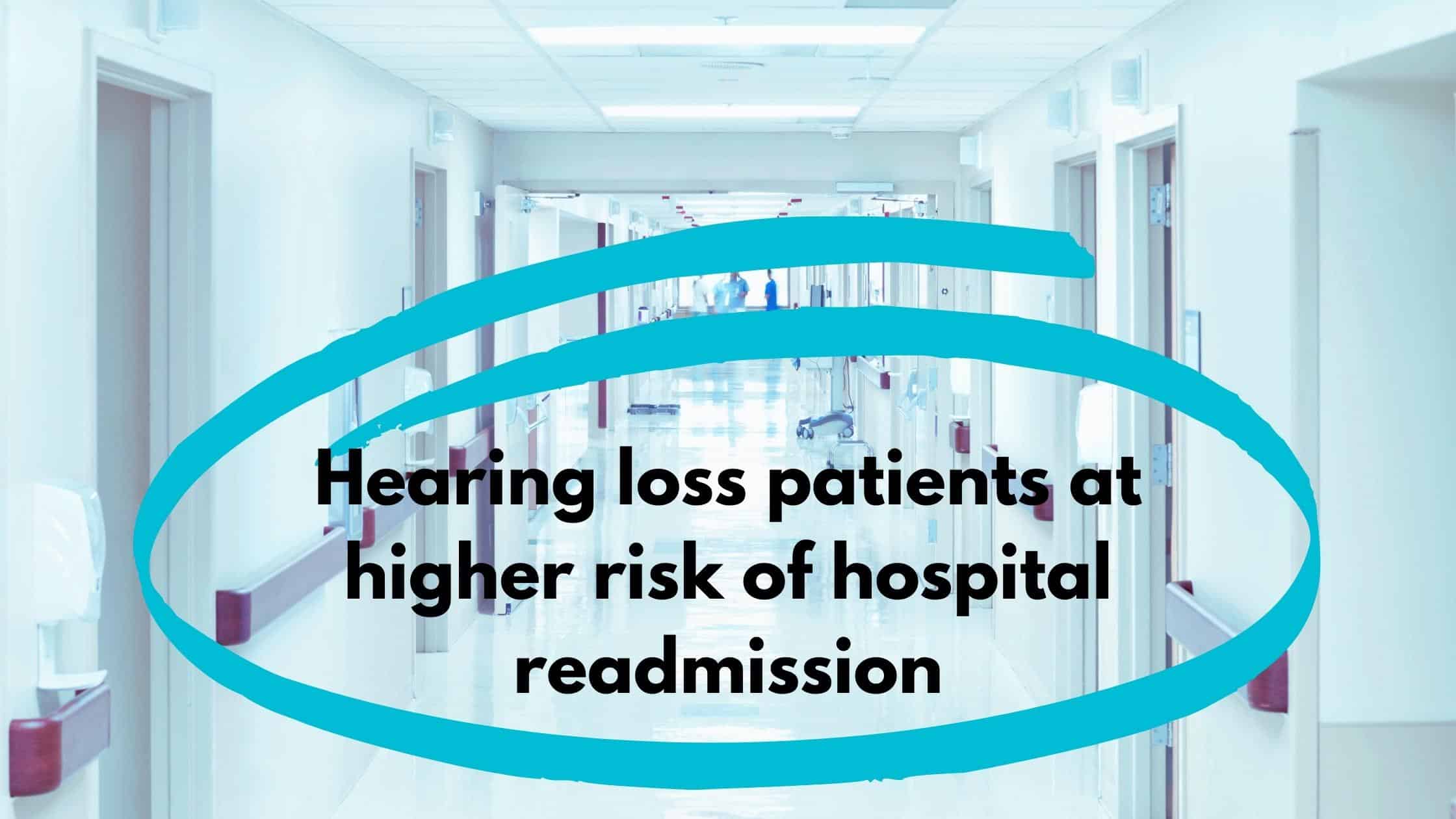
Recent studies show that people with hearing loss are more likely to be readmitted to the hospital compared to people without hearing loss. Hearing loss results in a reduced capacity to detect and process sound. This produces numerous symptoms that make it difficult to hear and navigate conversations. Strained communication impacts all aspects of daily life: from relationships, to job performance, and healthcare. This underscores the importance of prioritizing hearing health and seeking treatment which can transform your overall health and quality of life.
Hearing Loss and Hospital Readmission
Research shows that there is a link between hearing loss and increased rates of hospital readmission. Two major studies that examine this relationship include the following:
- New York University 2018 Study: researchers analyzed data from the Medicare Current Beneficiary Survey. They identified 4,436 patients, ages 65 and older, who reported having difficulty communicating with healthcare providers due to hearing loss. Researchers compared their hospital experiences with people who did not report difficulty communicating with medical personnel. They found that people with hearing loss were 32% more likely to be readmitted within 30 days.
- Johns Hopkins University 2018 Study: researchers collected information from a nation-wide healthcare database. Identifying 77,000 patients who were navigating untreated hearing loss, researchers assessed the claims related to their healthcare. They found that over a 10 year period, patients with hearing loss experience a 44% higher risk for hospital readmission within 30 days (compared to patients without hearing loss).
These studies reveal that hearing loss can substantially increase the risk of hospital readmission. This can also lead to increased healthcare costs as revealed by the Johns Hopkins study. Researchers found that over the 10 year period, total costs accumulated to $22,434 for each patient.
Hearing Loss & Communication Challenges
There are various factors that contribute to greater hospital readmission for people with hearing loss. One major challenge is strained communication with people often reporting experiencing issues communicating with medical staff. Hearing is also more challenging in environments that have higher levels of background noise and hospitals tend to be noisier settings.
Communication challenges with healthcare providers encompasses medical personnel not knowing or practicing effective communications strategies or being unaware that their patient has hearing loss. Additionally, people with hearing loss may experience greater difficulty with understanding instructions and other detailed information that is challenging to hear. Not being able to fully advocate for your health needs, understanding a diagnosis, or aftercare instructions contributes to hospital readmission.
In addition to communication difficulties, hearing loss increases health risks that could also lead to hospital readmission. This includes:
- Cognitive decline: hearing loss and conditions characterized by cognitive decline (dementia, Alzheimer’s) are correlated. Hearing loss increases the risk of cognitive decline by underusing cognitive functions.
- Depression: social withdrawal is a major effect of hearing loss. Avoiding social interactions, spending time with others, and isolating oneself contributes to loneliness and anxiety. It also impacts relationships and these effects contribute to depression.
- Accidental Injuries: hearing loss reduces capacity to hear, including in public environments. This reduces spatial awareness which increases risk of accidental injuries.
Untreated hearing loss can disrupt daily life and take a toll on health. Treating hearing loss is an important way to transform hearing and healthcare quality.
Treating Hearing Loss
Prioritizing your hearing health has countless benefits that significantly improve health and wellness. Seeking treatment is simple and starts by scheduling an appointment with a hearing healthcare provider for a hearing test. Hearing tests involve a painless, noninvasive, and relatively quick process that measures hearing capacity in both ears. This identifies any hearing loss and the degree of impairment. Once your hearing needs are established, your hearing healthcare provider is able to make effective recommendations to meet those needs.
The most common treatment for hearing loss is hearing aids which are electronic devices that help absorb, amplify, and process sound. This provides ample hearing support, allowing people to hear and communicate without the barriers of hearing loss symptoms. Treating hearing loss strengthens communication; greater capacity for hearing and communicating also allows people to better advocate for their health needs and navigate the healthcare environment! Additionally, treating hearing loss also improves relationships, social life, and confidence!
